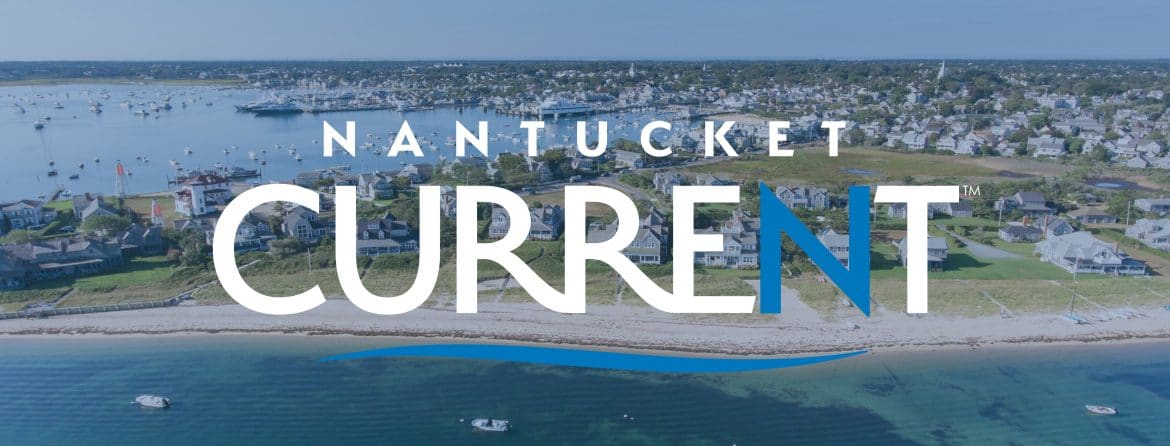Feeding snapping turtles from the town dock along Long Pond has evolved into a popular pastime for some island families and visitors. During the summer months, crowds of people pull off Madaket Road, attach raw chicken to a string or fishing line, and watch as the prehistoric-looking reptiles rise to the surface of the pond to feast on the meat.

But some Nantucket conservation and animal welfare groups are raising concerns about the practice. They are preparing to launch an initiative focused on turtle education, discouraging residents and visitors from feeding them, while providing opportunities to interact and learn about snapping turtles in a safer manner.
The initiative is gaining momentum after numerous snapping turtles in the Long Pond area have been seen with scarring on their heads, fishing line tangled around their neck and limbs, or hanging out of their mouths with rotting chicken still attached. Some are still alive, while others have been found dead, with the cause presumed to be choking from the fishing line or string used to feed them.
The initiative is being spearheaded by the Nantucket Island Safe Harbor For Animals (NISHA) with support from the Linda Loring Nature Foundation, the Nantucket Conservation Foundation, and the Nantucket Land Bank Commission, which voted unanimously this week to join the effort. The groups hope that by next spring the effort will feature new signage at the dock along Long Pond to educate people and dissuade them from baiting the turtles with raw chicken
“We’re all about humane education and getting information out about snapping turtles,” said Susan Richards, NISHA’s humane education coordinator. “I think people are ignorant about it, and they don’t think of it as I do, that it’s torturing turtles. They just want to see them and they’re excited about how they look. So we don’t want to whack people over the head with it, we want to put education out about it with a positive message. We know it’s a tradition for a lot of families, but we’re hoping to come up with regular activities presenting information about turtles.”
Feeding raw chicken to turtles by string or fishing line presents a host of issues, according to representatives of the island’s conservation and environmental agencies. The practice disrupts the turtles’ natural feeding and breeding habits, can make them more aggressive in general, and poses a danger to their health when they become tangled in or ingest fishing line and string.
Eve Wetlaufer, a NISHA board member, witnessed such an incident this August. Wetlaufer stopped at the Long Pond dock and a large snapping turtle came swimming up to the edge. It had three to four feet of red string hanging out of its mouth. Wetlaufer and a group of other people at the dock worked to carefully free the turtle, which seemed to be in obvious discomfort, and eventually managed to pull the string, tangled with chicken bones and rotting meat, from the turtles mouth.
“It was an intense experience,” she said. “This was an instance in which we took action and I hope it was for the best. The mission is to educate folks about these animals and celebrate them, and not interfere with them. There’s no shortage of opportunities on this island to witness wildlife in a safe and respectful manner. We recognize this has been a tradition on Nantucket, but I think that with a little more knowledge and outreach, we can adjust and adapt.”
Beyond potential for physical harm to the turtles, there’s the trash being created and left around the dock and pond area, where numerous Stop & Shop chicken containers have simply been left or thrown aside rather than properly disposed of.
Danielle O’Dell, ecologist and field supervisor with the Nantucket Conservation Foundation, said the turtle initiative has been something she and others have been talking about for years. The pandemic pushed back the effort to get it off the ground, but she is happy to see it moving forward under the direction of NISHA.
“We are very cognizant of the fact that this is a beloved pastime for Nantucket children and summer visitors alike and that no one is doing this with the intention or knowledge of harming turtles,” O’Dell wrote in a letter to the Land Bank seeing support for the effort. “We are also aware that some folks legitimately and legally fish for turtles for food. We are going to be working on drafting signs with language that tries to be mindful of those two things. Our intention is to provide educational information that would hopefully dissuade people from wanting to continue feeding wildlife in this way without chiding or shaming. We’re going with an ‘Evolution not Revolution’ approach to hopefully over time see fewer and fewer people continuing with this practice.”
Sarah Bois, the director of research and education at the Linda Loring Nature Foundation, believes that if people understood the negative impacts and potential harm of feeding snapping turtles, more would choose to find another way to interact with them.
“We know it’s a favorite pastime, for some reason, and there might be some negative reaction, but we want people to understand what the harm is,” Bois said. “For a lot of people, this is the closest they get to these creatures and they’re amazed by them. So we want to incorporate some educational programming so they can still have these experiences in a way that’s healthy for the turtles themselves. The main thing is that feeding wildlife really messes with their natural rhythms. Turtles are solitary and feed at the bottom of the pond. Now they’re conditioned that when they hear any disturbance by the dock, they come to the surface. This spreads disease more easily, it messes with their rhythm, breeding, and feeding cycles. They become habituated to people feeding them, and then they can become aggressive if people are not feeding them.”
As they noted, some island residents do take snapping turtles for personal consumption, a practice which is sanctioned by the state. A freshwater fishing license is required, and snapping turtles can be legally taken year-round, with the exception of May 1 to July 17, with a limit of two per day.






